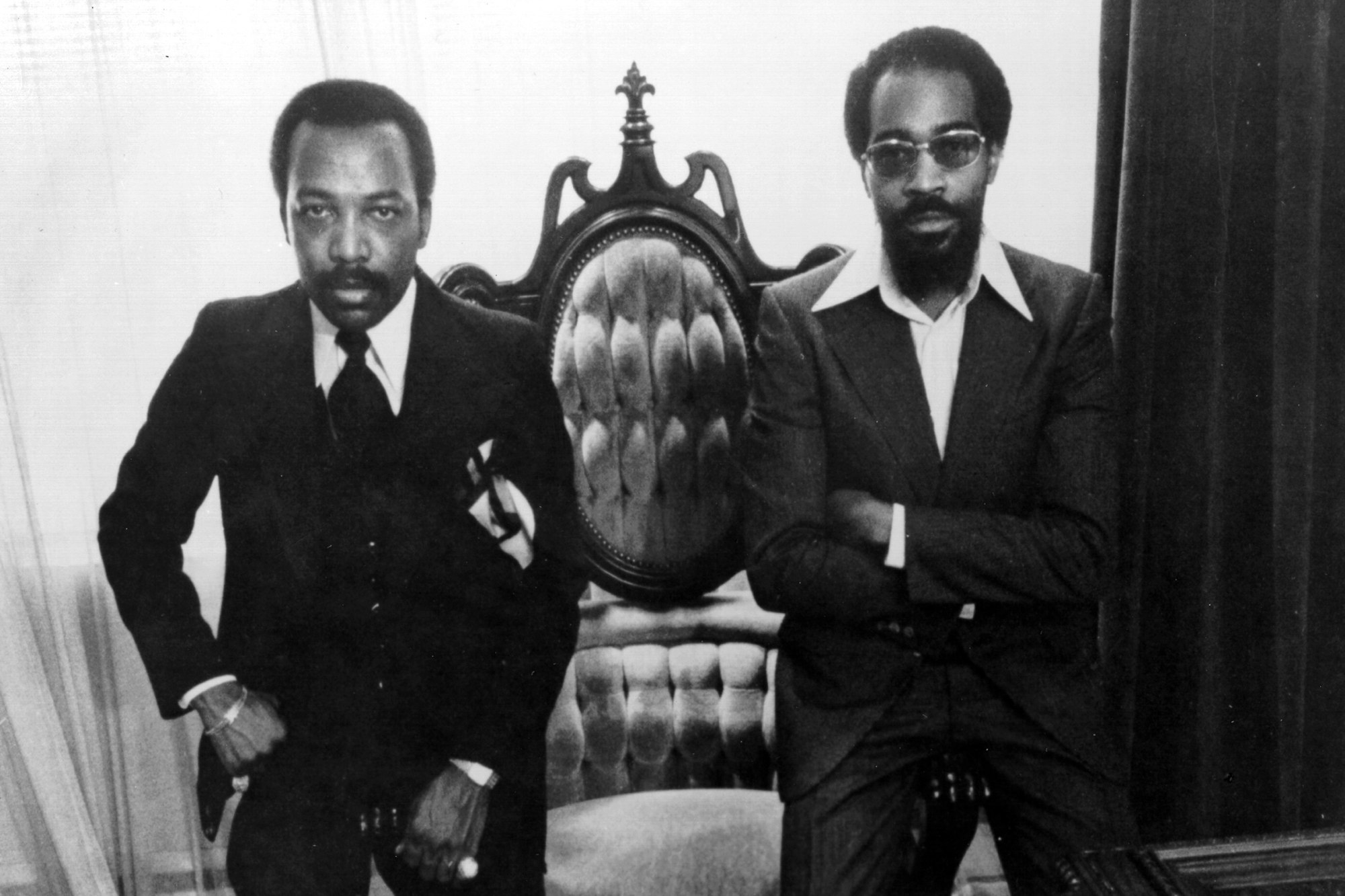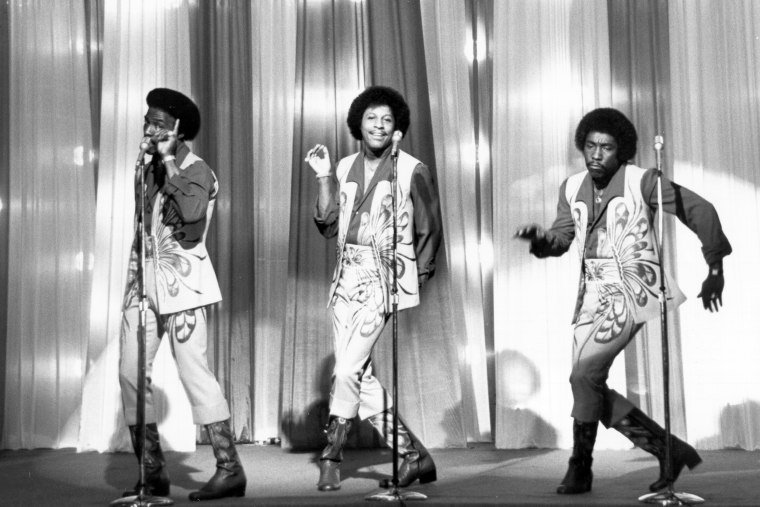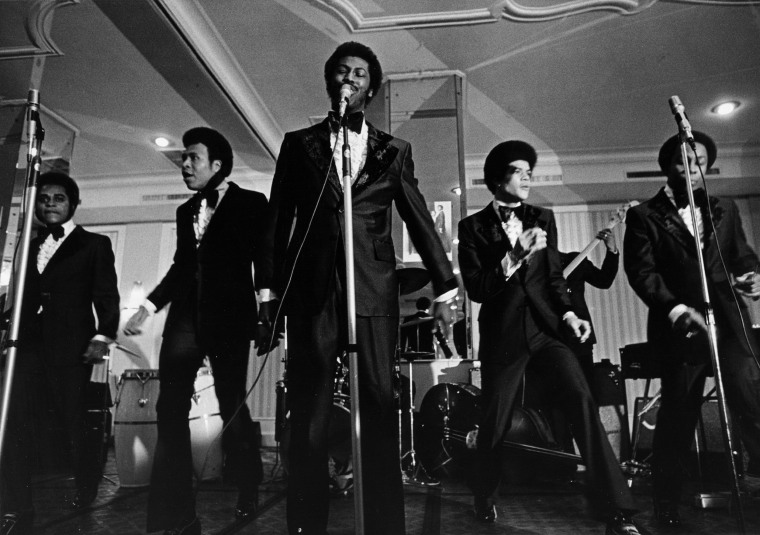
Gamble & Huff mark 50 years of Philly Soul and socially conscious music
By Christopher A. Daniel
NBC News
By the early 1970s, Kenny Gamble and Leon Huff were regularly meeting in Gamble’s office by an upright piano with a list of titles and a tape recorder to talk about the news or what was happening throughout Philadelphia. Their chemistry as songwriters and producers, combined with those frequent chats, laid the foundation for some of popular music’s most memorable, socially conscious songs to date.
“It was like Gamble and Huff at the Apollo, man,” Huff recalls. “Gamble would be singing, and I’m playing. Once we got started, we didn’t stop; as fast as I was figuring out which chord to play next, Gamble could write lyrics off the top of his head. It was an amazing time.”
“It was like Gamble and Huff at the Apollo, man,”
It’s five decades later, and Gamble and Huff are commemorating their lightning in a bottle. The elder statesmen who signed veteran performers like The O’Jays, The Three Degrees, Harold Melvin and the Blue Notes, Teddy Pendergrass, The Jacksons, Billy Paul, Phyllis Hyman, The Jones Girls, Lou Rawls, Jean Carne and Patti LaBelle are celebrating the 50th anniversary of their label, Philadelphia International Records, with a yearlong campaign featuring digital and new media partnerships; remastered and limited edition releases; and monthly themes associated with the now iconic brand.
The Grammy-winning twosome recorded at Sigma Sound Studios as two-thirds of The Mighty Three, with arranger/producer Thom Bell. Responsible for composing the “Soul Train” theme song, “TSOP (The Sound of Philadelphia),” Gamble and Huff are synonymous with crafting “Philly Soul” or the “Philly Sound,” a hybrid of lush string arrangements, pre-disco rhythms, jazz horns, precise melodies, spirited harmonies, and funky grooves performed by their 40-piece orchestra, MFSB.

“The ʼ70s was our era,” Gamble said. “‘Soul Train’ took off, and it became a monster. All of us were together; I give Don Cornelius his props because it seems like every other week, he had one of our artists until all of our artists were on there. It was magnificent and unbelievable.”
Classic songs like “Back Stabbers,” “For the Love of Money,” “If You Don’t Know Me By Now,” “When Will I See You Again,” “Turn Out the Lights,” “Me and Mrs. Jones,” ”Don’t Leave Me This Way,” “You Gonna Make Me Love Somebody Else,” “Love Train,” “You’ll Never Find a Love Like Mine,” “Close the Door,” and “Wake Up Everybody” all stem from Black catchphrases or colloquialisms the writing pair often heard.
Members of the Rock & Roll Hall of Fame, the Songwriters Hall of Fame and the Dance Music Hall of Fame, Gamble and Huff customized each song to fit the artists. The lyrics often spoke of romantic love; embracing their ethnic and cultural identities; or taking steps in the right direction to uplift people from all walks of life.
“We had a star-studded roster with great singers, performers and an orchestra to play,” Huff, 79, said. “It was like a songwriter’s heaven; we had a certain speed and tempo that we wrote from.”
“Some of the things we do just come natural,” Gamble, 77, said. “We talked about the betterment of humanity and allowing human beings to be the instrument. We not only have love songs; it helps alert our community with beautiful music, lyrics and grooves.”
The iconic Philadelphia sound
Gamble and Huff met in 1963 getting on an elevator in the office building where they worked four floors apart. Huff, a session musician who worked menial labor, started regularly commuting to Philadelphia from his hometown, Camden, N.J., to hold marathon songwriting sessions with Gamble, a record store owner and leader of a vocal group, The Romeos. Huff, the former co-chairmen of the Songwriters Hall of Fame, cranked out 10 songs at their first full meeting.
“I didn’t have no plan B,” Huff said. “My goal was to make it in the music business some way; I wasn’t doing nothing but washing dishes in hospitals, but I knew that wasn’t my calling.”
Among Gamble and Huff’s early successes were The Intruders’ “Cowboys to Girls,” The Soul Survivors’ “Expressway to Your Heart,” Archie Bell and the Drells’ “I Can’t Stop Dancin’” and Jerry Butler’s “Only the Strong Survive.” Also the owners of several rotating boutique record companies, Gamble and Huff’s first attempt to get distribution from Atlantic Records was turned down.

But Clive Davis, then president of CBS Records, took notice of the pair’s growing list of writing credits and signed them to a distribution deal for PIR in 1971. Gamble and Huff built a stable network with distributors and radio programmers for their past creations but felt it was necessary to land support from a major brand to promote and distribute their consistent output.
